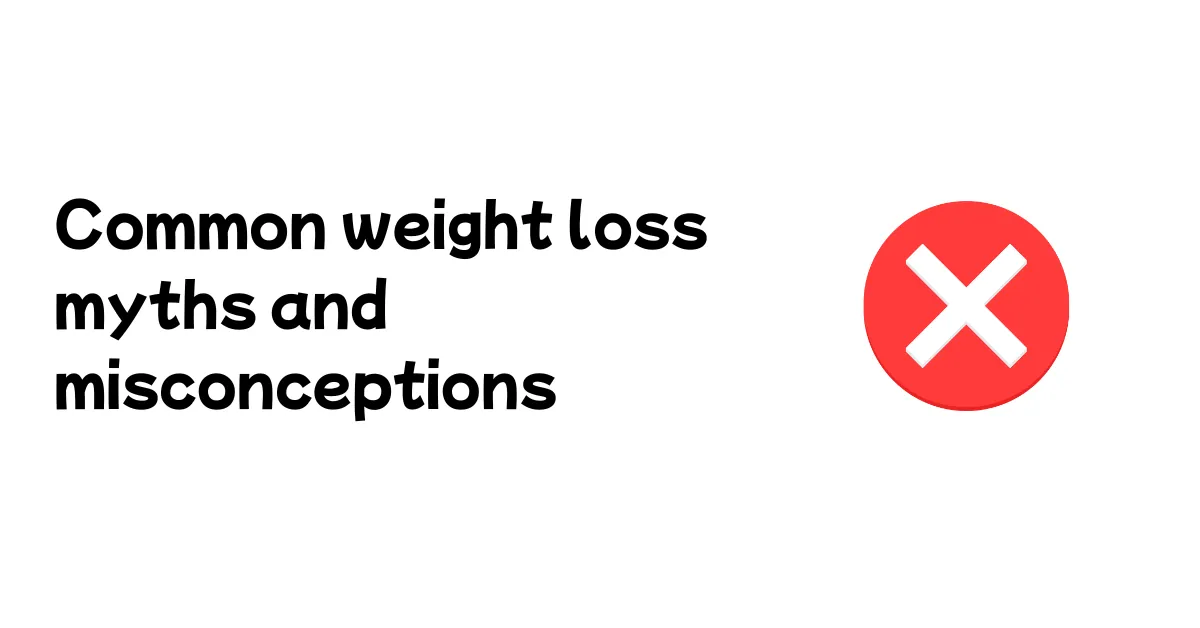There’s so much information out there about these weight loss myths, and it can be hard to separate what’s true from what’s not. I’ve come across my fair share of myths and misconceptions, so I wanted to share some of the most common ones I’ve heard and set the record straight.
Myth 1: Fasting is the best way to lose weight.
While fasting can be a tool for some people, it’s not a magic bullet for everyone. And it’s definitely not the best way for everyone. Prolonged fasting can lead to nutrient deficiencies, muscle loss, and other health issues. It’s much more important to focus on a balanced diet and sustainable lifestyle changes.
Myth 2: “Low-fat” means healthy.
During the low-fat craze, many people replaced healthy fats with processed carbs and sugary foods. The result? Weight gain and other health problems. Healthy fats are essential for hormone production, nutrient absorption, and feeling satisfied. It’s important to focus on healthy fats, like those found in avocados, nuts, and olive oil, rather than just cutting out all fat.
Myth 3: Carbs are bad for you.
Carbs are a primary source of energy for our bodies! The key is to choose complex carbohydrates like fruits, vegetables, and whole grains, rather than processed and sugary carbs. Complex carbs provide sustained energy and keep you feeling full.
Myth 4: You have to starve yourself to lose weight.
This is a big one, and it’s so wrong! Starving yourself or drastically cutting calories can actually backfire. Your body can go into “starvation mode,” slowing down your metabolism and making it harder to lose weight. Plus, it’s not sustainable, and it can be harmful to your health. A moderate calorie deficit, combined with a balanced diet, is a much healthier and more effective approach.
Myth 5: The more you sweat, the more fat you lose.
Sweating is your body’s way of cooling down, not necessarily a direct indicator of fat loss. You lose water when you sweat, which can lead to a temporary drop on the scale, but it’s not the same as losing body fat.
Myth 6: Eating after 8 PM will make you gain weight.
It’s not when you eat that matters most, but how much you eat throughout the entire day. If you’re within your daily calorie needs, eating after 8 PM won’t automatically lead to weight gain. That being said, big meals right before bed can disrupt sleep, which can indirectly affect your weight.
Myth 7: Weight loss supplements are a magic solution.
Supplements can sometimes be helpful, but they are not a substitute for a healthy diet and regular exercise. And many supplements make unrealistic promises and have little to no scientific backing. It’s always best to focus on a holistic approach to weight loss.
Myth 8: You can target fat loss in specific areas.
You’ve probably heard people say they want to “lose belly fat” or “tone their thighs.” Unfortunately, you can’t choose where your body loses fat first. Fat loss generally occurs all over the body, though genetics can influence where you tend to lose it most.
The Truth About Weight Loss
The bottom line is that sustainable weight loss is about creating healthy habits that you can maintain long-term. It’s about a balanced diet, regular physical activity, getting enough sleep, and managing stress. There are no quick fixes or magic solutions.

